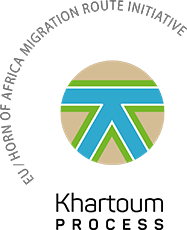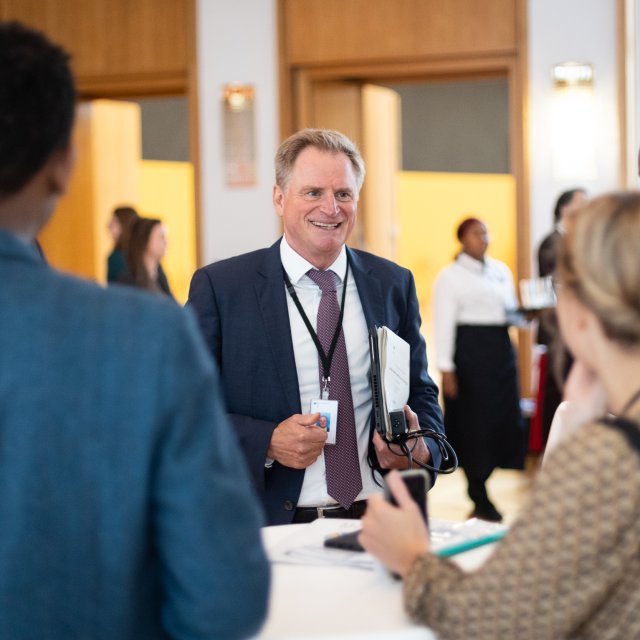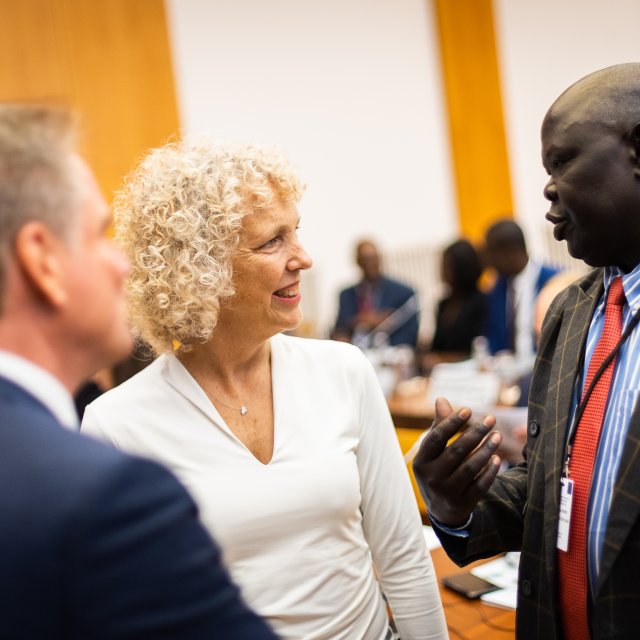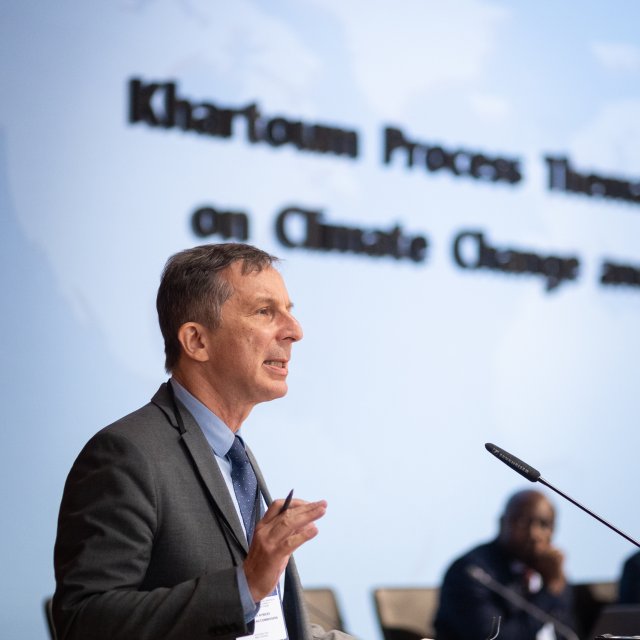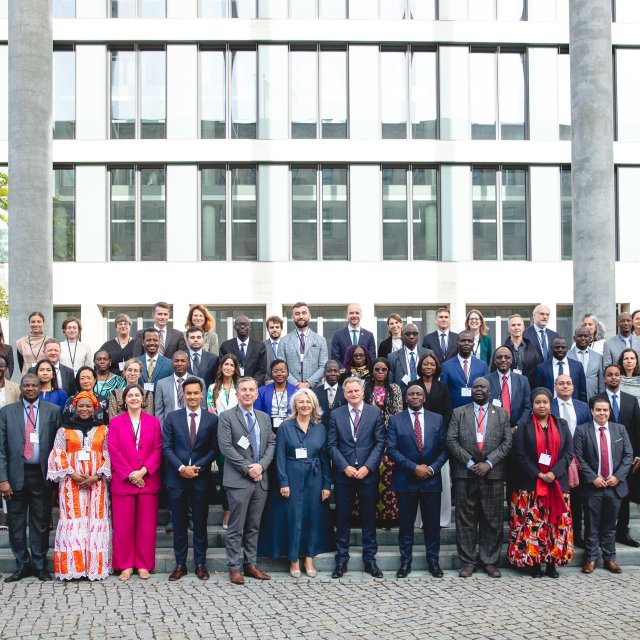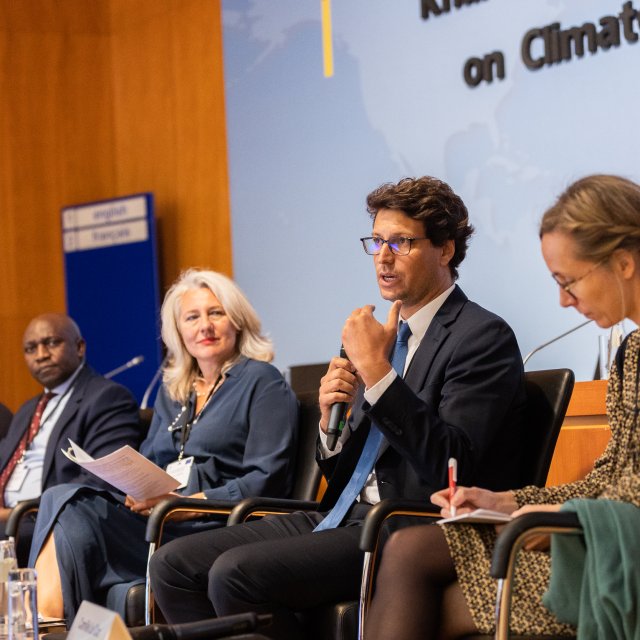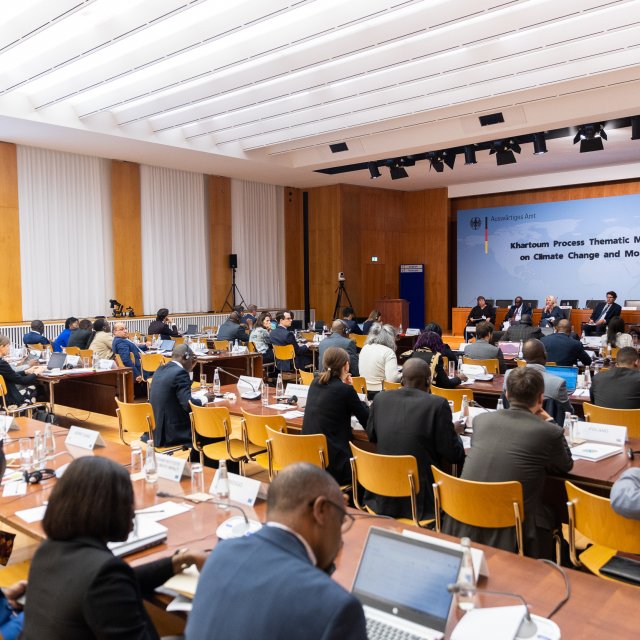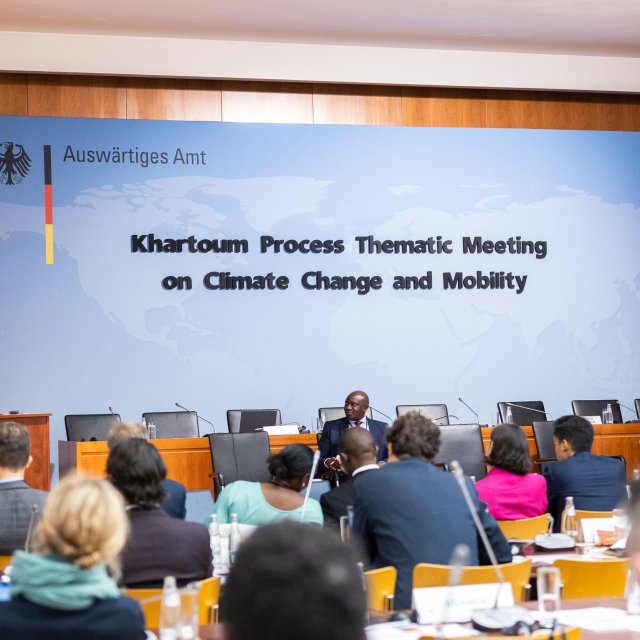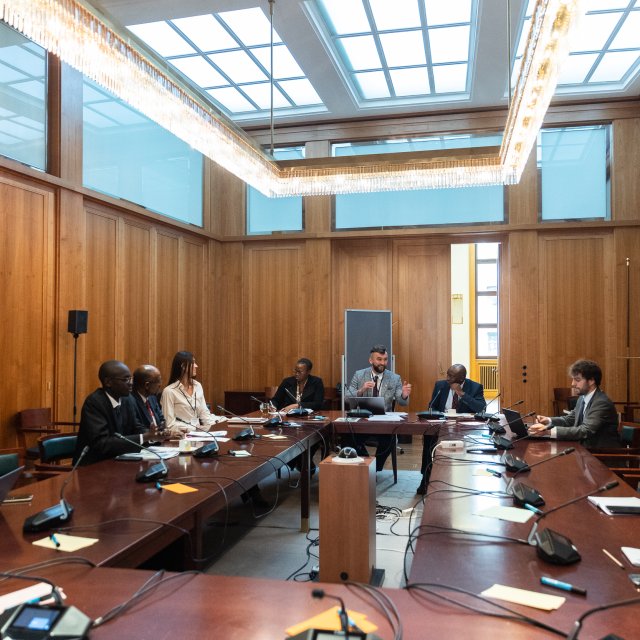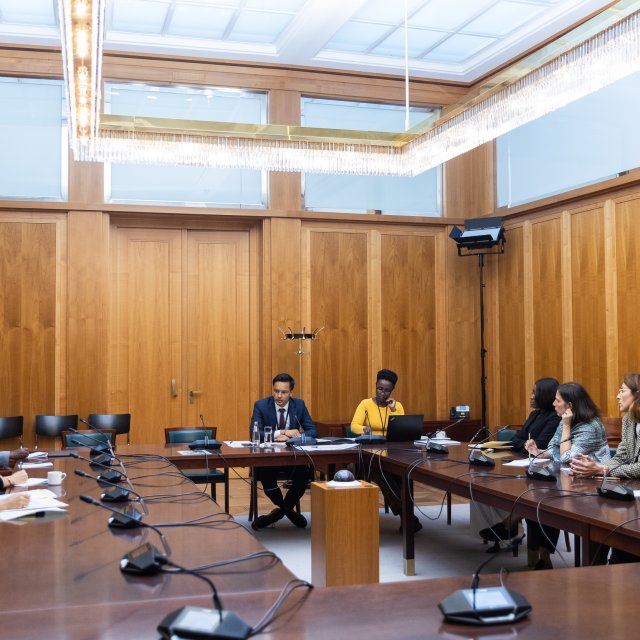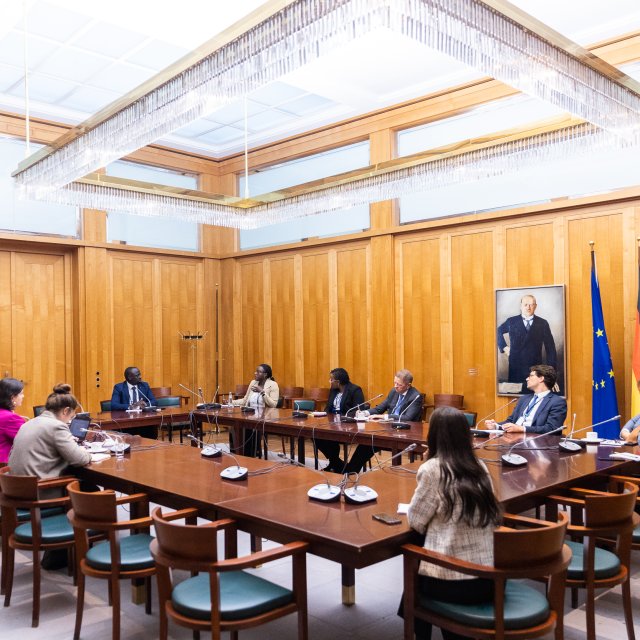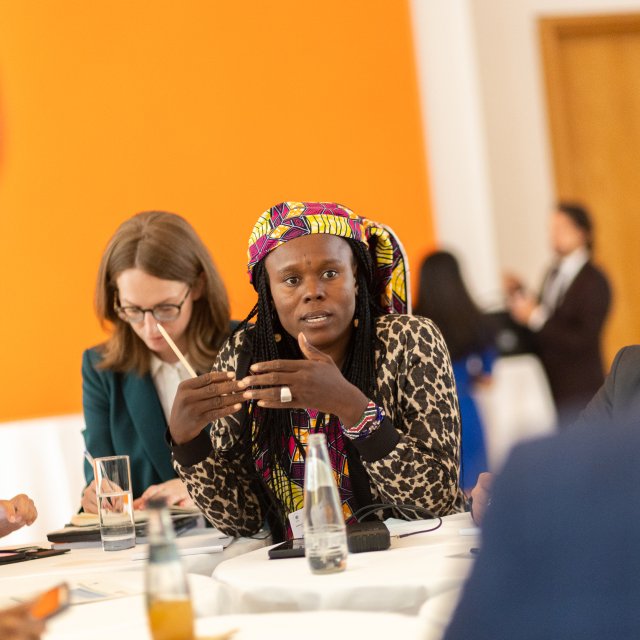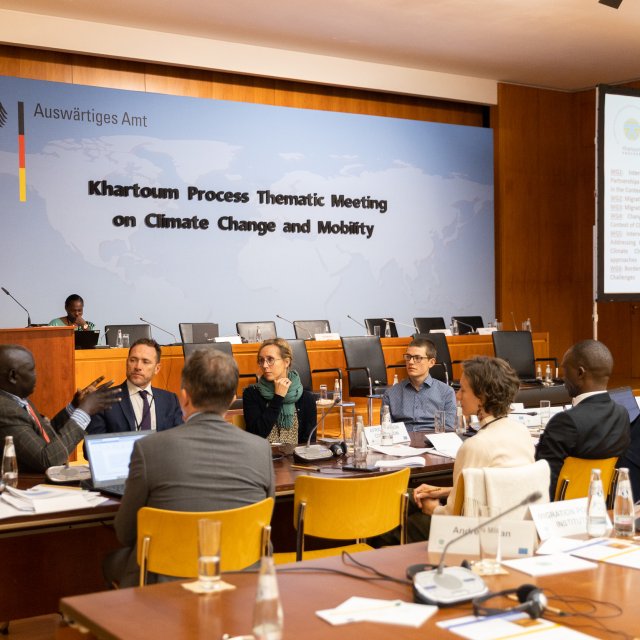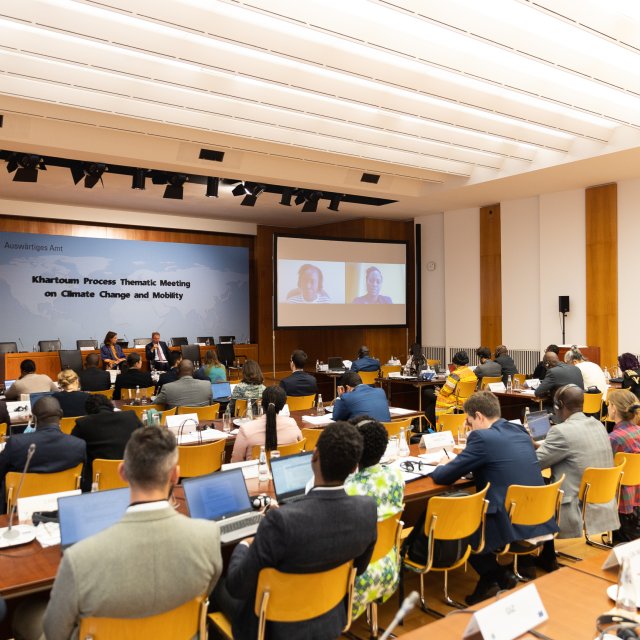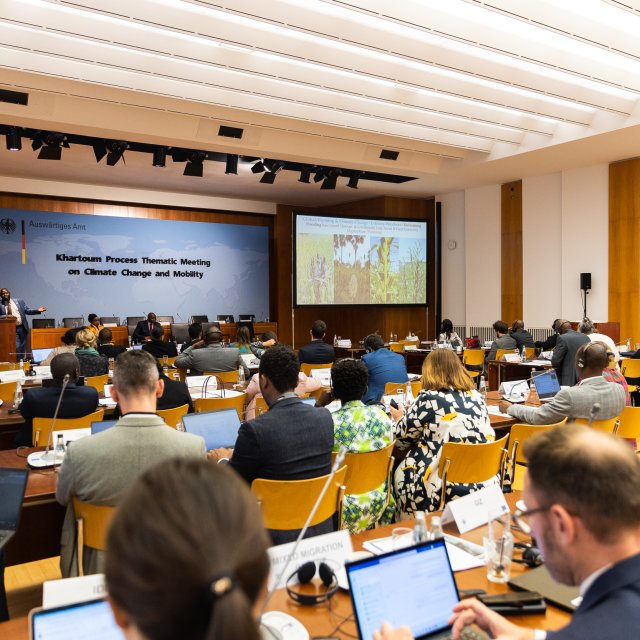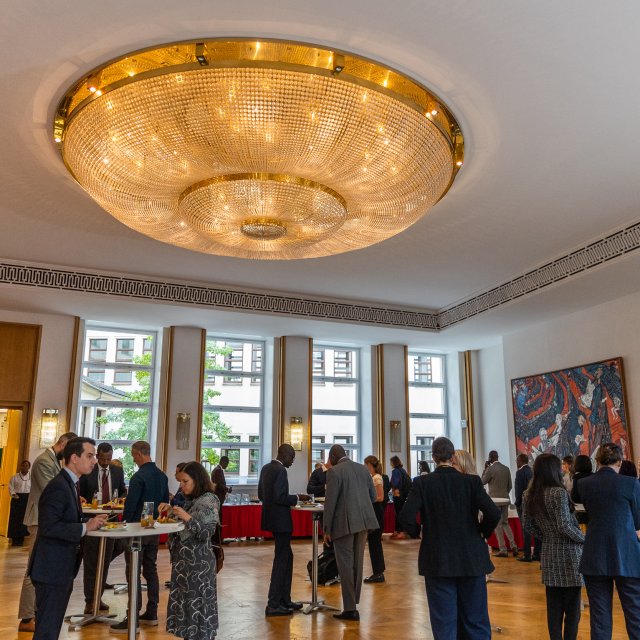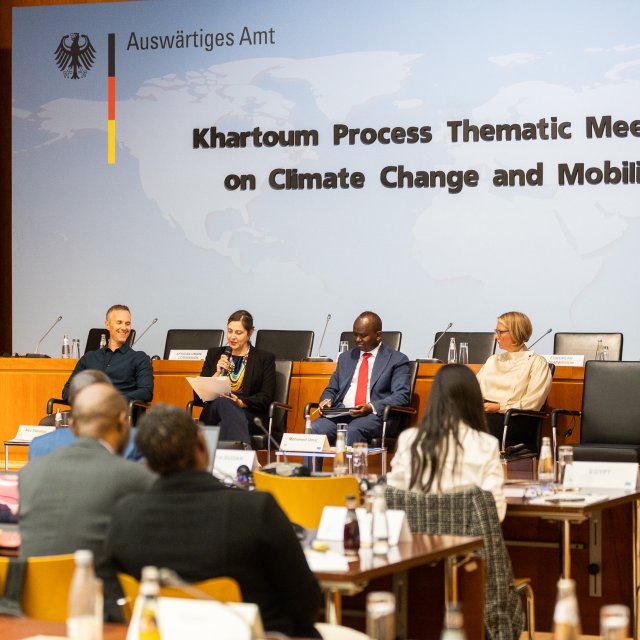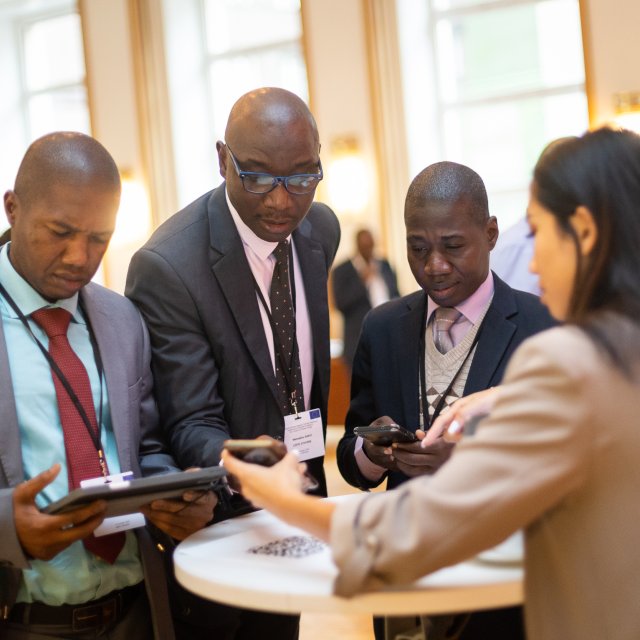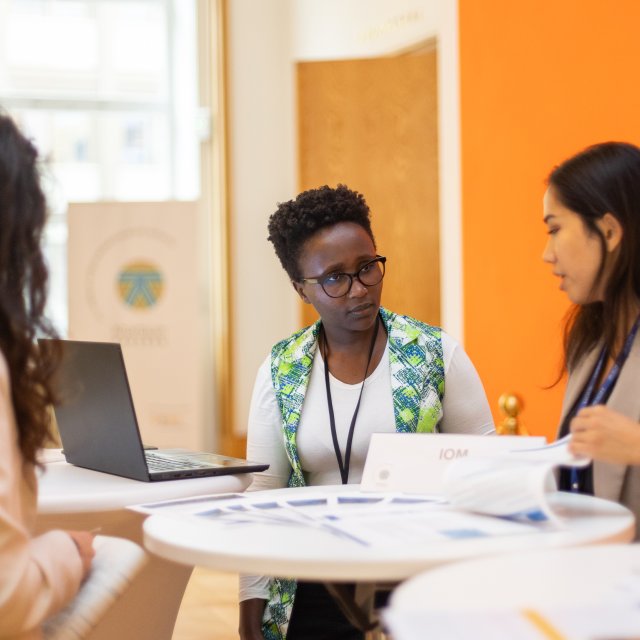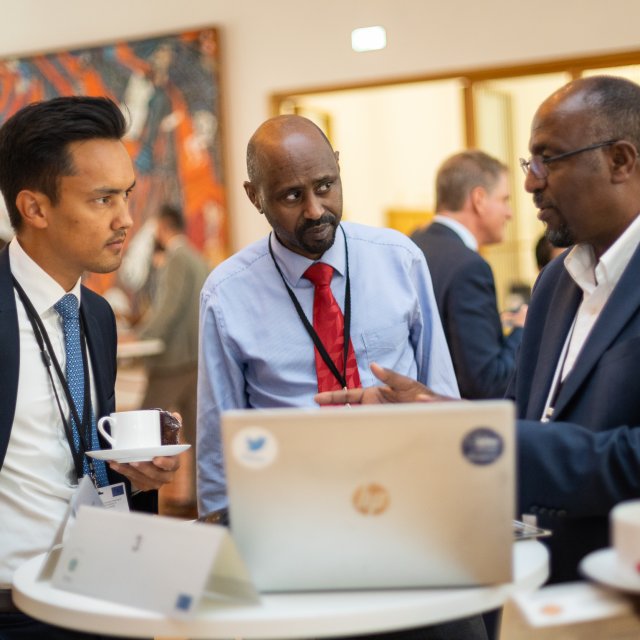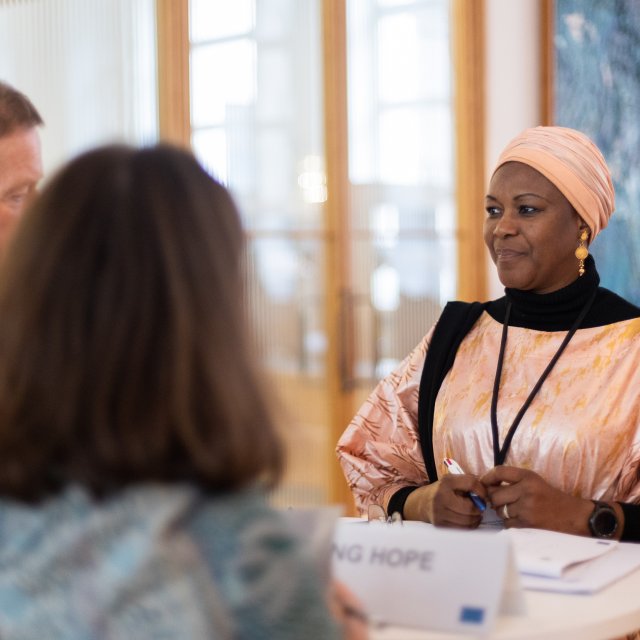On 4-5 October 2023, the Khartoum Process Flagship Thematic Meeting on “Exploring the Potential of Mobility in the Context of Climate Change” took place in Berlin, Germany, co-chaired by Germany and the African Union Commission. Building on the priority outlined during the Chairmanship of South Sudan on the nexus between human mobility and climate change, Germany, the current Chair of the Khartoum Process, has picked up the thread with various events on the topic that culminated into the Khartoum Process flagship thematic meeting on 4-5 October 2023, in Berlin, Germany.
The meeting brought together approx. 100 participants from the Khartoum Process and Rabat Process member States, as well as experts from international organisations and civil society organisations to discuss the opportunities and challenges stemming from the mobility and climate change nexus, whilst paying particular attention to the situation of women and children.
Climate change induced mobility does not only bring challenges but also opportunities. Mobility in the context of climate change can be an adaptation measure rather than an unwanted consequence. Adaptation measures better prepare populations to withstand climate shocks, particularly for populations who rely on livelihoods that are heavily affected by the effects of climate change such as agriculture. In this regard, mobility, and specifically labour mobility, can be a mitigation measure. One of the key EU priorities is to work with African partners to address labour European labour shortages. Upscaling labour migration pathways could be a win-win for both continents. Many African countries from the Khartoum Process and the Rabat Process regions shared examples of policies set up to tackle climate change induced mobility.
However, adaptation measures are only efficient when they bring stakeholders and frameworks from different levels of governance together. In this regard, strengthening regional approaches to climate change action and regional political progress on climate change frameworks emerged as a way to increase resilience to climate change across scales.
Numerous examples discussed during the thematic meeting illustrated how women and children are more exposed to climate change. Climate change is threat multiplier and worsens existing inequalities. During droughts, women as primary procurers have had to work harder to produce income for their family. In addition, domestic violence, unwanted pregnancies, early and forced marriage all increase in periods of climate crisis. Any efforts to increase resilience of populations should have a gender lens to mitigate existing inequalities and continuous evaluations of policy frameworks are paramount to ensure the inclusion of gender considerations.
The perspectives of Khartoum Process and Rabat Process members States were complemented by those of civil society organisations. This flagship thematic meeting hosted the very first exhibition of civil society organisations which provided first-hand knowledge and experiences on the interlinkages between climate change, migration and gender.








